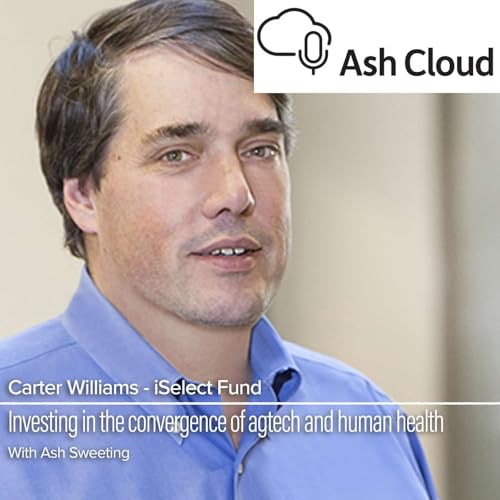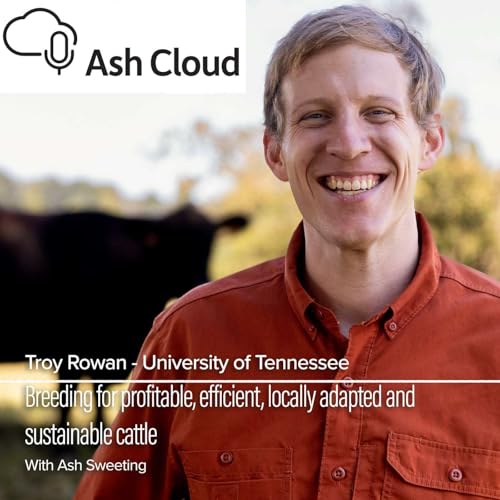Animal Health as a Climate and Food Security Solution
In this episode of the Ash Cloud podcast, we explore an often-overlooked opportunity in the fight against climate change with Dr. Nick Wheelhouse, Professor of Comparative Infectious Disease at Edinburgh Napier University and co-lead of the Global Research Alliance Animal Health and Greenhouse Gas Emissions Intensity Network.
Dr. Wheelhouse brings unique expertise spanning both veterinary research and animal science. After completing his BSc in Agricultural Biochemistry and Nutrition at Newcastle University and PhD in Animal Science at the University of Aberdeen, he worked as a Senior Postdoctoral Scientist at the Moredun Research Institute before joining Edinburgh Napier University. His research focuses on bacterial pathogens affecting reproduction—particularly Chlamydia, Brucella, Coxiella burnetii, and Listeria—in both humans and livestock, with extensive work on disease surveillance across Africa.
The central thesis challenges conventional thinking: while sick animals are universally recognized as unproductive, the climate implications remain surprisingly underexplored. Wheelhouse reveals that approximately 20% of global animal production is lost due to health issues, with higher burdens in the Global South. This represents not just wasted resources and food insecurity, but significant greenhouse gas emissions as animals continue producing emissions while failing to produce food.
The conversation explores specific case studies, including ongoing work with Kenyan dairy farmers where 53% of animals show subclinical mastitis. For farmers earning approximately $70 per cow per year, the $10 treatment cost represents a substantial investment. Yet through basic hygiene and management interventions rather than expensive pharmaceutical solutions, the project aims to demonstrate tangible productivity improvements that make economic sense while delivering environmental co-benefits.
Throughout the discussion, Wheelhouse unpacks the complexity of animal health as a climate solution. The counterintuitive reality is that healthier, more productive animals do produce more emissions, but they generate far more food per unit of emission. The goal is to close the productivity gap caused by disease, thereby reducing the emissions intensity of animal-source foods rather than absolute emissions. In Tanzania, research on abortion in livestock suggested potential emissions reductions of 8% in cattle and 16% in small ruminants, while hundreds of thousands could benefit from the additional food that would otherwise be lost.
Wheelhouse is candid about the challenges: the complexity of measuring disease impacts, lack of robust data collection systems in many regions, and difficulty quantifying climate benefits from health interventions. These have kept animal health as a "slow burner" in climate discussions. However, he notes an encouraging shift following FAO reports that elevated the topic among international partners and potential investors.
The discussion touches on broader implications, including research from Tanzania showing that increased livestock disease correlated with decreased school attendance for girls—demonstrating how animal health impacts cascade through communities beyond immediate productivity losses.
Looking forward, Wheelhouse emphasizes disease prioritization must account for local contexts, since farming systems and solutions vary dramatically across regions. He advocates for starting with achievable interventions that farmers can see working among their peers, rather than waiting for perfect technological solutions. The key is empowering farmers with tools delivering tangible results worthy of their effort and investment.
Ultimately, this conversation makes a compelling case for why animal health
Send us a text
 52 分
52 分 47 分
47 分 36 分
36 分 50 分
50 分 52 分
52 分 1 時間 3 分
1 時間 3 分 2025/10/2256 分
2025/10/2256 分 51 分
51 分
